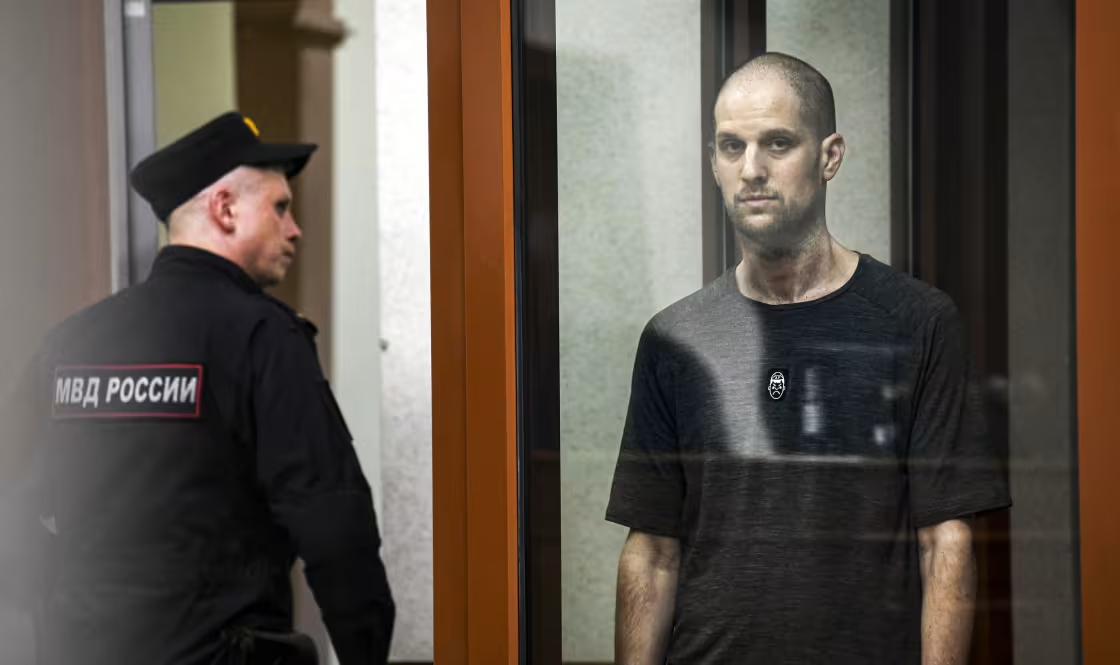WASHINGTON, DC – The U.S. government is generally doing a good job in its dealings with the families of Americans held hostage abroad, but the families of Americans wrongfully detained by foreign governments believe their loved ones should get more attention from U.S. authorities, according to the findings of a new report released today.
The 2020 “Bringing Americans Home” research study, conducted by the James W. Foley Legacy Foundation, is the second nongovernmental assessment of policies put in place in 2015 that created mechanisms within the government to respond to the concerns of hostage families. Until then, there was no designated point of government contact.
“The structures created by the U.S. government’s 2015 Hostage Review largely continue to function effectively,” the report said. “The creation of the Hostage Recovery Fusion Cell (HRFC), the office of the Special Presidential Envoy for Hostage Affairs (SPEHA), and the Hostage Response Group (HRG) improved governmental access for hostage families and this year’s hostage participants remained generally pleased with their ability to gain access to the U.S. government through these organizations.”
But the report went on to say, “There is a notable disparity in the treatment of hostage and wrongful detainee families by the U.S. government, with the latter receiving less attention, information, and access.” The families of Americans wrongfully detained by a foreign government “have generally not benefited from the government’s 2015 reforms and require additional support.”
The Foley Foundation report, issued in partnership with New America, is based on interviews with 25 former American hostages, detainees and their family members and representatives. Eleven participants were associated with hostage cases and 11 with wrongful detainee cases. The three remaining participants were family advocates with experience with both. In total, the participants had experience with 16 cases evenly divided among hostages and wrongful detainees.
The foundation is named for conflict journalist James W. Foley who was held hostage in Syria and executed by ISIS in August, 2014. It advocates for the freedom of all Americans held abroad and promotes the safety of journalists, like James, who operate in dangerous areas around the world.
“Our second annual report is focused on the experience of all categories of wrongfully held Americans—whether taken captive by criminals, terrorists, pirates, or foreign governments,” said Diane Foley, mother of James and founder and president of the foundation. “These results will be shared with both the U.S. government and nongovernmental organizations that work for the return of U.S. hostages and wrongful detainees and support their anxious families. Our goal is to raise awareness of this issue and to prioritize the return of all Americans held abroad for their families.”
Among the report’s findings and recommendations:
- The results of the 2015 reforms have been “largely durable and effective, but the complexity of hostage cases demands continued improvements.” Survey participants remained generally pleased with their ability to gain access to the U.S. government.
- The U.S. government must continue to maintain the organizations created in 2015 and ensure their sustainability by providing dedicated funding.
- There is a notable disparity in the treatment of hostage and wrongful detainee families by the U.S. government, with the latter receiving less attention, information, and access. Wrongful detainee participants reported, in general, that they did not feel as though their loved ones’ cases were a priority for the U.S. government and shared confusion about where they could receive support within the government. Among other things, they are largely unsatisfied with the consistency and accuracy of the information shared with them.
- The government should identify available funding and changes that need to be made in current law, policy, and authorities to better support detainee families. One recommended change is to create a family engagement coordinator within the Office of the Special Presidential Envoy for Hostage Affairs (SPEHA).
- Participants voiced concern about the increase in vacant positions within the SPEHA and said a fully staffed office must remain a priority for current and future administrations.
- The role of the government in the reintegration of hostages after their return home is unclear, participants said. The government should clarify the support it can and will provide.
“We hope these findings and suggestions will serve as a constructive outline to guide efforts to improve the government’s dealings with hostage and detainee families,” Foley said.



